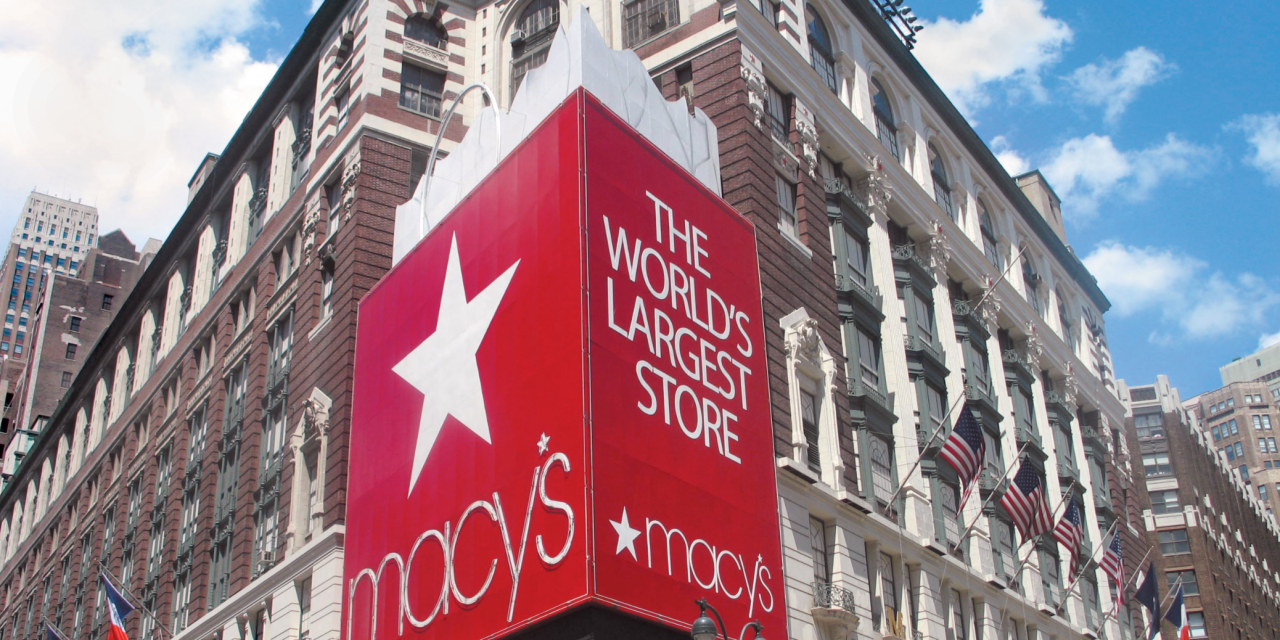Why Nordstrom & Macy’s are considering going private

Major retail companies are allegedly considering taking their company out of the public market.
Nordstrom’s founding family is reportedly seeking to take the department store private, according to Reuters’ reporting last week. The report came just a few months after investors of fellow department store Macy’s initiated talks to take the company private.
It’s no surprise that sales for discretionary goods like apparel and footwear have been weak over the past couple of quarters due to inflationary pressures. In response, Macy’s has been investing in luxury concepts and Nordstrom has been expanding its off-price Rack business to grow their customer base. But these decisions aren’t always popular among investors who expect immediate returns. Taking their companies private would alleviate them from quarterly expectations to focus on long-term improvements.
“They would have a longer timeframe. They wouldn’t have the pressure of quarterly and annual earnings results,” said Aron Bohlig, managing partner at boutique investment bank ComCap. “If you’re a public company, generally the time to achieve an ROI from an investment in the public markets, needs to be three months or 12 months at the most. But in many cases, new technology initiatives can take 12 to 18 months.”
Bohlig said that value creation plans that take over 18 months to see returns can be difficult to execute in the public market. These drastic transformative moves that elevate costs or reduce EBITDA could impact share price.
Indeed, the costs associated with a turnaround can appear brutal in the eyes of the public market. In the fourth quarter, Macy’s swung to a loss of $71 million compared to last year’s $508 million net income. Part of the losses was attributed to $1 billion of impairment and restructuring costs from Macy’s plans to shut down 150 stores.
Meanwhile, Nordstrom had already started to warn investors that sales could decline in 2024. Nordstrom expects revenue to drop around the 2% to 1% range. Its total revenue for the fiscal year 2023 declined 5.4% to $14.7 billion.
Ad position: web_incontent_pos1
“Big department stores have been challenged for a while, and many of them now are getting to a point where they have to pivot,” said Sudip Mazumder, North America retail industry lead for Publicis Sapient. “There are no guarantees that it’s going to work out in the short term, but longer term this could play out right.”
For Nordstrom and Macy’s, acquiring new customers means making investments outside of what they’re known for. The core Nordstrom banner is positioned as a luxury department store, but in 2024, the company said it plans to open 22 more of its discount chain Nordstrom Rack after opening 19 new stores already in the fiscal year 2023. Nordstrom Rack’s sales grew 14.6% in the fourth quarter.
CEO Erik Nordstrom, in a recent earnings call, described Nordstrom Rack as a “growth engine for our company.” He added that it was the company’s “largest source of new customer acquisition” with a quarter of Rack customers becoming Nordstrom shoppers within four years.
Meanwhile, Macy’s is taking the opposite route. The department store is instead investing in its luxury offering. While Macy’s is closing 150 of its underperforming namesake stores in the next three years, it intends to open 45 new stores for its luxury chains Bloomingdale’s and Bluemercury. Back in December, Macy’s also unveiled a luxury beauty concept in its Miami location.
Going private to execute these strategies also signals that the road to recovery might take years. “If you look at it from a Macy’s or Nordstrom standpoint, they see at least a couple of years before they get to recovery,” Mazumder said. “In the short to medium term, the outlook is still not very rosy.”
Ad position: web_incontent_pos2
Taking their companies out of the public market won’t be an easy solution. In fact, it could also introduce other problems. Jeff Kluth, senior principal at Infosys Consulting, said privately held retailers would have limited access to capital and it would also create issues with talent retention. Additionally, taking a company private can be a distraction for retailers who should be focused on their own value creation plan.
“Going private can create uncertainty amongst management and employees,” Kluth said. “What makes an organization great, traditionally, comes down to people and talent. Retaining that talent through those transitions is monumental.”

